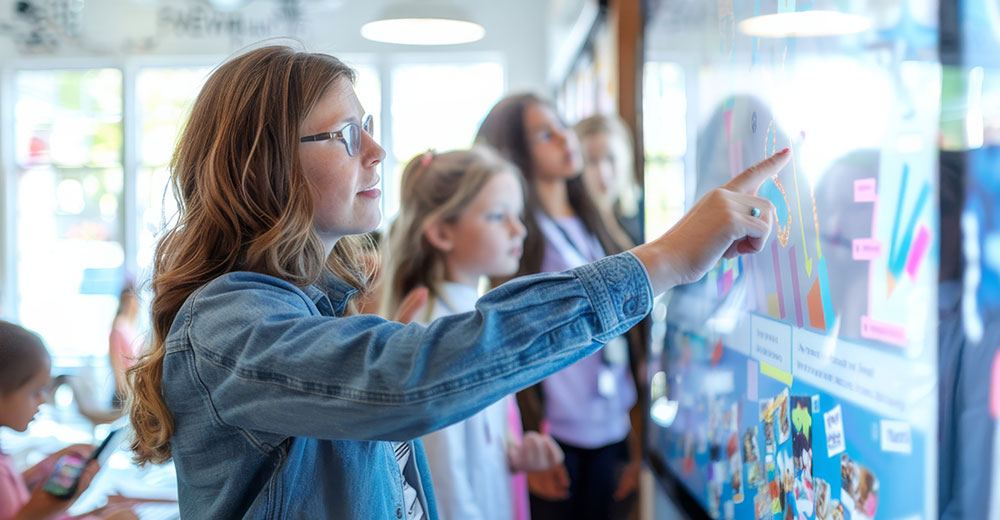ADVERTISEMENT
Don’t Let Ransomware Threats Cripple Your Cyber Resilience Plan
Most IT leaders admit backup and recovery can be compromised in attacks. Learn how to defend against evolving threats and minimize downtime. Get your copy of Building Cyber Resilience: Are You on the Right Track?
I was on a panel recently discussing the future of work when a fellow panelist shared a chilling statistic. In their research, they had monitored the social media platform Discord and found a server with approximately 5,000 children actively and openly discussing suicide.
These conversations were unfolding in a digital space with virtually no adult supervision — a dark corner of the internet where despair was festering among the generation expected to build our future. That reality is more than a tragic footnote in the story of technology; it is a blaring siren signaling a catastrophic failure of both parenting and education.
As we stand on the precipice of an AI revolution that will reshape society, we are failing to equip our children with the emotional resilience to navigate the world today, let alone the skills and purpose to thrive in the world of tomorrow.
Let’s talk about the urgent need to build emotional and digital resilience in our children as they head back to school, and then close with my Product of the Week: the new Pixel 10 Pro Fold.
Parenting in the Age of Anonymity
The Discord anecdote is a symptom of a much larger disease. While parents of previous generations worried about what their kids were doing at the park, today’s parents must contend with a borderless, anonymous digital world that operates 24/7.
Platforms like Discord are designed for community, but without vigilant oversight, they can become echo chambers for the most dangerous aspects of adolescent angst. The platform’s safety features often require a teen’s cooperation to be effective, leaving a massive gap where parental guidance should be.
This lack of oversight is happening against the backdrop of a well-documented youth mental health crisis, exacerbated by the pressures of social media.
We are allowing our children to be raised by algorithms and anonymous peers in environments we don’t understand and can’t control. Before we can even begin to prepare them for a future shaped by AI, we must first pull them back from the digital abyss by re-engaging in their online lives, establishing firm boundaries, and fostering open communication about the dangers they face online.
Education System’s Broken Compass
While parents are struggling on the home front, our education system is failing on a systemic level. We are still operating on an industrial-era model of schooling, designed to produce compliant workers for jobs that are rapidly disappearing. The curriculum is focused on rote memorization and standardized testing—skills that AI can already perform better than any human.
A Reuters/Ipsos poll this month revealed that 71% of Americans are concerned that AI will lead to too many people losing jobs, yet our schools continue to guide students down career paths that may not exist by the time they graduate.
Career counseling, if it exists at all, is often an underfunded afterthought, incapable of providing relevant guidance for an AI-driven job market. We are teaching students what to think, but not how to think. We are preparing them for a world of predictable, linear careers, while the reality they will face is one of constant change and disruption.
The result is a generation armed with obsolete knowledge and a broken compass pointed toward a future that no longer exists.
The Anti-Work Generation: A Crisis of Purpose
This trend leads to a deeply concerning cultural shift. Many young people today see work not as a source of fulfillment but as something to endure or avoid altogether. Viewing work as something to endure isn’t laziness; it’s a rational response to the world they see. They are graduating with crushing debt into a gig economy, looking at a future where their skills could be automated away, and seeing a corporate world that often seems to offer little more than burnout.
Surveys of Gen Zs and millennials consistently show a deep desire for purpose-driven work and a healthy work-life balance — things the current system seems ill-equipped to provide. When education fails to connect learning to passion and purpose, and when the future of work appears precarious and unfulfilling, it is no wonder that a sentiment of disillusionment takes hold.
If we do not fix this crisis of purpose, we risk raising a generation that is not only unemployable due to a skills mismatch but also unwilling to work because they have never been shown that a career can be a source of joy and meaning.
New Curriculum for the AI Era
The challenge is immense, but the path forward is clear. We need a radical overhaul of our education system, one that shifts the focus from what AI can do to what it can’t. The curriculum of the future must be built on a foundation of uniquely human skills.
First, we must prioritize critical thinking and complex problem-solving. Instead of asking students to memorize the answer, we need to teach them how to ask the right questions and evaluate information from multiple sources. AI itself can be a powerful tool in this process.
Educators can leverage AI as a Socratic partner for students, a tireless tutor that can challenge their assumptions, ask probing questions, and force them to defend their reasoning. Rather than using AI to get an answer, students can learn to use it to refine their thinking.
